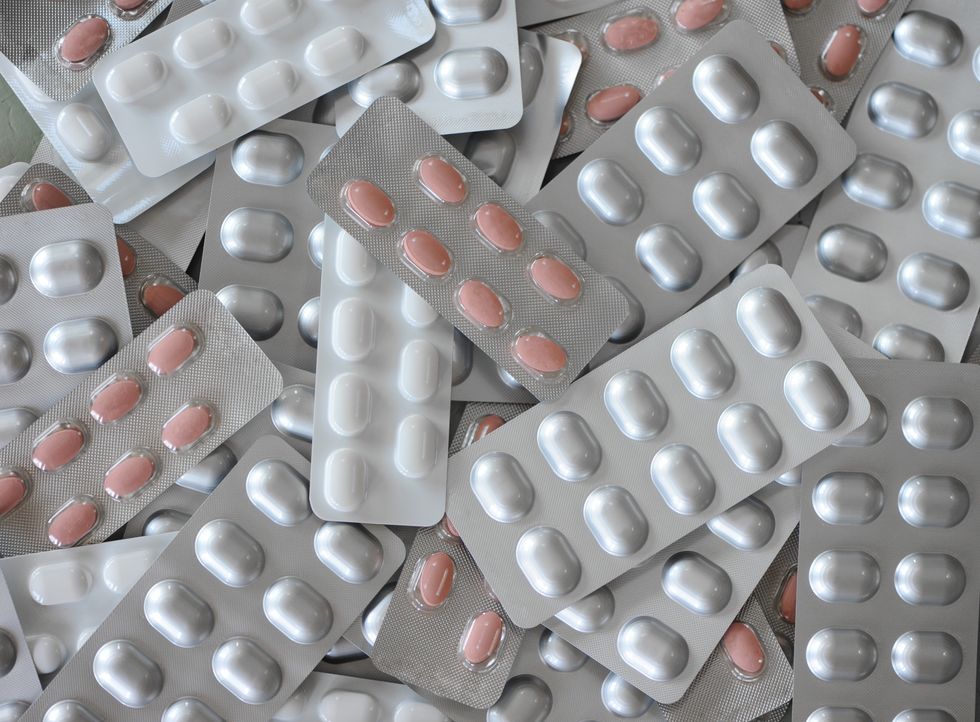



A groundbreaking daily weight loss pill has shown it can help people shed up to a fifth of their body weight, bringing fresh hope to millions struggling with obesity.
The tablet, called orforglipron and made by Eli Lilly, works on the same GLP-1 receptors as popular weight loss jabs like Mounjaro and Wegovy. But here's the exciting bit - it comes in pill form rather than injections.
In a major trial involving over 3,000 adults, one in five people who took the once-daily tablet for 72 weeks managed to lose 20 per cent or more of their body weight.
“In adults with obesity, 72-week treatment with orforglipron led to significantly greater reductions in body weight than placebo,” the authors wrote. “The adverse-event profile was consistent with that of other GLP-1 receptor agonists.”

The tablet doesn't produce quite the dramatic results seen with Mounjaro injections
|GETTY
The beauty of this new pill is that it could reach far more people than current injection treatments. Pills are much easier to store and distribute, and they don't need the same careful handling as injections do.
Dr Sean Wharton from McMaster University in Canada, who led the research, said: "This could mean an expansion of obesity interventions to groups who are currently excluded due to the cost of and lack of access to injectable medications."
While the tablet doesn't produce quite the dramatic results seen with Mounjaro injections, experts believe its convenience will make weight loss treatment accessible to many more patients.
The trial split 3,127 patients from nine countries into groups taking different pill strengths or a placebo. All participants had obesity, but not diabetes.
It turns out the results varied by dose. People taking 6mg daily pills lost an average of 7.5 per cent of their body weight after 72 weeks. Those on the highest 36mg dose lost an average of 11.2 per cent.
The higher doses showed particularly impressive results - more than half the people taking 36mg lost at least 10 per cent of their body weight.
Over a third managed to drop 15 per cent or more, while nearly one in five achieved that remarkable 20 per cent weight loss.
The weight loss came with other health benefits, too. People taking orforglipron saw their blood pressure improve, their waist measurements shrink, and their bad cholesterol levels drop.
Like other GLP-1 drugs, the most common side effects were stomach-related issues, though these were mostly mild to moderate.
The researchers noted that the side effect profile matched what we've seen with similar medications.
The pill isn't approved by regulators yet, but Eli Lilly expects huge demand when it launches. The full study results have just been published in the New England Journal of Medicine and presented at a major diabetes conference in Vienna.
The new medication represents one of several significant advances over current injectable medications.

The pill could reach far more people than current injection treatments
|GETTY
Scientists recently engineered a weight loss drug shown to rival the effectiveness of gastric surgery by simultaneously activating four different hormone receptors, rather than the three currently targeted by existing treatments.
The compound marries the actions of GLP-1, GIP, glucagon and PYY hormones to reduce body weight by up to 30 per cent potentially.
The tetra-functional drug, devised by researchers at Tufts University, aims to overcome individual variations in patient response.
Robinson Professor of Chemistry, Krishna Kumar, who headed the research, said: "Obesity is linked to over 180 different disease conditions, including cancer, cardiovascular disease, osteoarthritis, liver disease and type 2 diabetes, and affects over 650 million people worldwide."
